Presentation, Video
Aug 26 2022
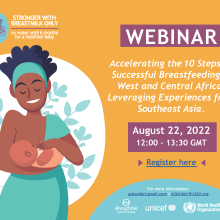
Accelerating the 10 Steps to Successful Breastfeeding in West and Central Africa: Leveraging Experiences from Southeast Asia
In August 2022, UNICEF, WHO, Irish Aid and Alive & Thrive's offices in West Africa and Southeast Asia collabor
Brief
Aug 16 2022
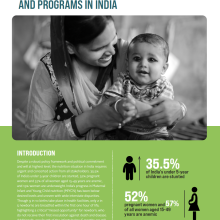
Leveraging professional medical associations to strengthen MIYCN policy and programs in India
In India, a large proportion of pediatricians, gynecologists, community medicine specialists, general practitioners, and nurses working across both public and private health sector belong to professional medical associations.
Announcement
Aug 01 2022
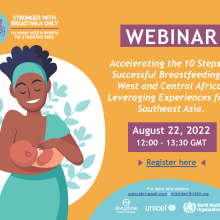
WEBINAR: Accelerating the 10 Steps to Successful Breastfeeding in West and Central Africa. Leveraging Experiences from Southeast Asia
The Stronger with Breastmilk Only regional initiative, a collaboration of UNICEF, WHO and Alive & Thrive, is pleased to invite stakeholders to a 90-minute webinar on August 22 at 12:00 GMT to discuss how to accelera
Brief
Jul 16 2022
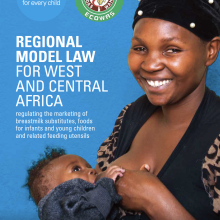
Regional Model Law for regulating the marketing of BMS
As part of the efforts to protect breastfeeding and save lives, UNICEF, WHO, Alive & Thrive, HKI and IBFAN, in collaboration with the West African Health Organization (WAHO), have developed a regional model law for regulating the marketing of breastmilk substitutes, foods for infants and youn
Toolkit
Jun 28 2022
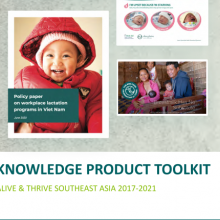
Southeast Asia Knowledge Product Toolkit
This toolkit introduces and disseminates knowledge products from A&T's key interventions and impact in Southeast Asia from 2017-2021 under 3 key program objectives:
Journal article
Jun 23 2022

Breastfeeding Interpersonal Communication, Mobile Phone Support, and Mass Media Messaging Increase Exclusive Breastfeeding at 6 and 24 Weeks Among Clients of Private Health Facilities in Lagos, Nigeria (Flax, V. Journal of Nutrition)
A breastfeeding promotion intervention in private facilities in Lagos, which included training for healthcare providers, increased the percentage of exclusively breastfed infants but had no impact on early initiation of breastfeeding.

